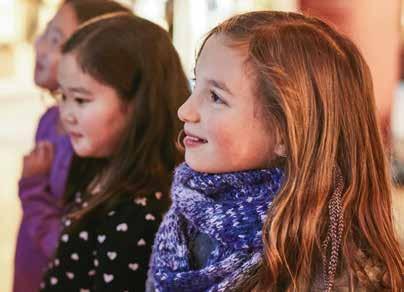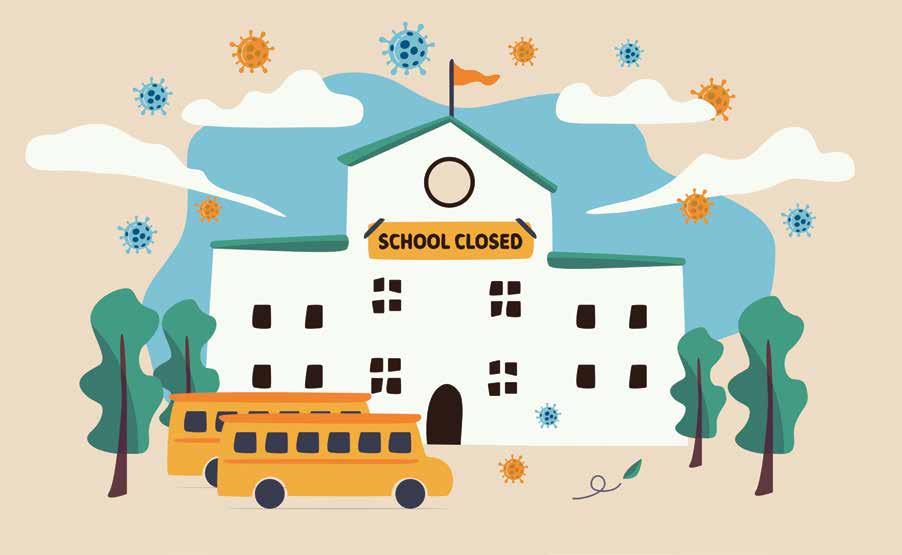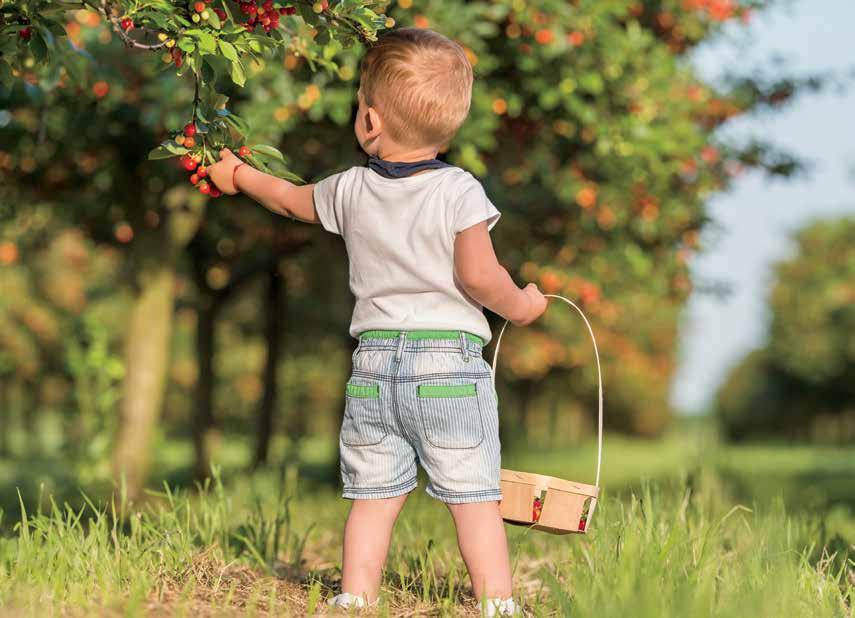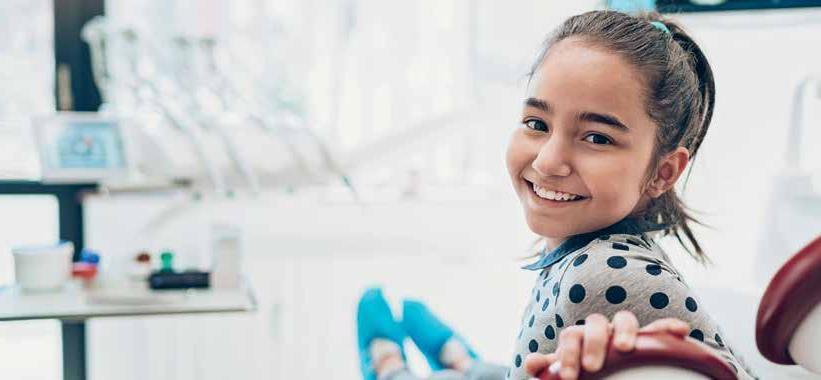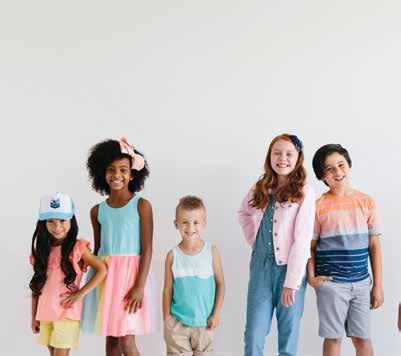
6 minute read
IT STARTS WITH YOU(TH
Meet Robin Hall This local youth works to empower womxn through healing conversations
By Patty Lindley
Robin Hall is passionate about helping other girls and womxn explore and reorient their sense of self-worth. This focus evolved in large part out of her connection with Young Women Empowered (Y-WE; youngwomenempowered.org), a local organization that provides mentorship-based leadership development programs for its diverse intergenerational community of belonging. Her own exploration of issues around body shame led to the development of a workshop-based project at Y-WE involving group “fishbowl” conversations to support a process of creative healing for “anyone who [identifies] with the word woman in any way.”
The project and her proficiency at facilitating transformative conversations have since blossomed through a subsequent internship and the creation of a book, “Our Bodies Are Voices.” Hall has been acknowledged for her work in community healing as part of the Bill & Melinda Gates Foundation Discovery Center’s “We the Future” showcase of young leaders of social change. The 19-year-old Hall has completed an associate degree in sociology from Bellevue College and plans to continue this vein of study at Western Washington University. We caught up with her to learn more about the power of mentorship and what she sees ahead for the development of her passion project.
How did you become involved with Y-WE?
I was 16 when I got involved with Y-WE. I decided to try their year-long program called Lead. It was just immediately life-changing. I know that sounds overdramatic, but seriously, it really was a revelation. It’s an amazing program for young women and girls of color and non-gender-binary people focusing on coming together and sharing experiences, growing together and really honing leadership skills. They have several “Everybody’s programs, but that particular one is what I started with. self-hatred
I had this expectation going in that we were going to be looks different, taught how to be facilitators or taught how to lead a group of so everybody’s people effectively. It wasn’t like that at all. It was like learning to build confidence in yourself, healing is learning to find your voice in a meaningful way. Then taking different, too.” that into that next step of sharing it with other people.
Y-WE is known for its unique multicultural, intergenerational mentorship model. Can you talk a little bit about that?
Y-WE is a space where there’s a 13-year old and there’s a 70-year-old, and they’re just interacting as their own people who both have knowledge, but also as people who respect each other. I think having that multigenerational space is really important because everyone can learn from each other. We have alumnae of Y-WE coming back with their children, their babies — coming into that space and seeing that is really powerful. We have elders in our group who are really adding to the space in a
powerful way.
What’s the story behind your passion project?
I was on the Y-WE Youth Leadership Council, which is basically like a bridge between youth and board and youth and mentor. Every year we have a project or a personal project that we do. I realized that I have had and have a lot of issues with body shame and self-hatred. Being in spaces like Y-WE, I realized there were so many resources for self-love. You see all these programs: “Come here and learn about self-love.” “Eight ways to love yourself.” I thought, that’s really great, that’s wonderful. I’m sure it’s life-changing for people, but for me, I’m not at that space yet. I have not even looked at my self-hatred, so how can I love myself fully?
I looked around and I was like, well, there must be a place where I can talk about self-hatred. And there just wasn’t. It’s kind of a taboo thing where people have this reaction, “Oh, self-hatred? Shut down that conversation! We don’t want negative energy.” For me, this isn’t negative energy. This is me trying to process. This is healing work for me and that’s being shut down or turned away or made uncomfortable or awkward. I knew all women are going through this. This is an isolating normal. This is a system of women’s oppression that is being ignored: Our society tells us to hate ourselves. I recognized this as an issue, as something I need to work on. I’m confused by it, but I can do it, and I know that people need it, because I need it.
What did the project entail?
For my first project, I had a group of only about six or seven people — all women and girls of different ages, different races — and we just talked. We met three or four times and I had some questions for them and we just talked about
it. Every single time, I learned something new. I felt healed in some way. We just kept sharing experiences. For me, a lot of my self-hatred was around my body, but for a lot of these girls it was about the color of their skin, of course, or how smart they were in school. It was just this learning curve for me. Everybody’s self-hatred looks different, so everybody’s healing is different, too. Just having those discussions was healing in itself. I realized that I’m not alone. Everyone is feeling this.
At the end of my little project, we all came together and we painted on ourselves and on each other. I wanted them to paint either what this process felt like or what self-hatred feels like or what self-love feels like. At the end of that, I took pictures of them and I made it into a little tiny gallery to show off at our Y-WE summit. It was just amazing. Clearly, I had to keep doing this.
So, what came next?
That year, I got an internship with an organization called foundry10 [foundry10.org]. I expanded on the project. I had a couple of other small groups and took more pictures. I just would lead them in small group circles through these exercises involving metaphor and involving body language and how we express things physically. They’re fishbowl conversations, so people could talk openly and be listened to, and then I took pictures. I ended up putting it into a book — it is called “Our Bodies Are Voices.” There’s not a lot of writing or words; it’s mostly a physical representation of a portion of my work.
I want to keep doing this thing; this project is my passion and what I hope to expand on.
How are you going to manage all that with school?
In Bellingham, I am sure a lot of youths there have self-doubt, self-shame. I think it could be a great thing for me to do as a side project, as maybe even a way to earn credit or as a final project for something.
How would you advise other youths to get involved in issues that matter to them?
I think a big part of it is finding that person or those people who can mentor you, who can help you get to where you want to be. I think that’s really the core of it: Find your people. And know that there is always someone to reach out to. If you want a literal example, reach out to Y-WE. We will be there for you — I can guarantee it. n
Sponsored by:

At the Bill & Melinda Gates Foundation, we believe all lives have equal value. We are impatient optimists working to reduce inequity. Explore interactive exhibits and find ways you can take action at the Gates Foundation Discovery Center, discovergates.org
DISCOVERY CENTER @HOME
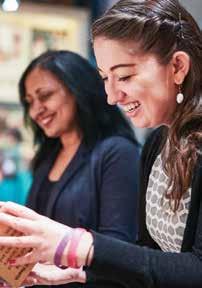
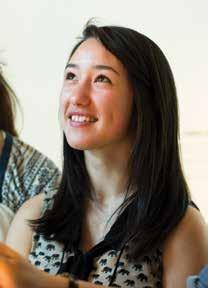
Explore interactive exhibits, take action activities, education resources, and inspiration for all ages.
